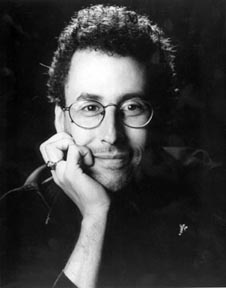Dramaturgical Resources
2009
The Illusion
By Pierre Corneille, Tony Kushner
Over the course of the season, our assistant directors and student dramaturgs will be compiling dramaturgical resources relating to each production as it develops. Below are some links to websites which relate to the history of the play, the biography of the playwright, and sites that contextualize and, we hope, shed light on the directorial approach to the dramatic material.
We hope you find these resources of interest.
Pierre Corneille (1606-1684)

Tony Kushner (b. 1956)
The Illusion is playwright Tony Kushner’s 1990 adaptation of L’Illusion Comique, originally written in 1636 by Pierre Corneille as The Theatrical Illusion.
Pierre Corneille has been called “the founder of French tragedy” and is often associated with Moliere and Racine.
Corneille’s L’Illusion Comique exemplifies the transition from the Baroque style of drama towards a return to Classicism. To read more about the history of 17th century drama, click here. More on French Neoclassicism can be found here.
Many of the central issues in Corneille’s work allude to the rivalry between the Church and the Theatre. For an interesting analysis of Corneille’s work and it’s relationship to the church, read this.
L’IllusionComique was first performed at the Hotel de Bourgogne in 1636.
Tony Kushner is a Pulitzer-prize winning playwright. More information on Kushner’s other works can be found here.
For more information on Kushner’s adaptation and the differences between The Illusion and L’IllusionComique, look here.
Some reviews of Kushner's adaptation can be found here, here, and here.
The Illusion contains allusions to both Greek and Roman mythology, as well as to other literary works. Specifically, the play refers to the story of Orpheus and Eurydice and references the lovers, Caliso and Melibea.
Love is a major unifying theme in The Illusion, specifically the contradictions between romantic, courtly and religious love. (More on courtly love can be found here, here, and here; more on religious love, can be found here.)
For an interesting scientific perspective on love, look here and here.

